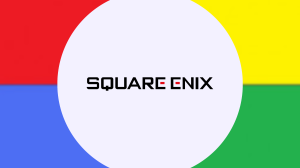Dungeons & Dragons has released a new draft of its upcoming new Open Gaming License, with a portion of the Core Rules covered under a Creative Commons license outside of Wizards of the Coast’s control. Today, Wizards of the Coast released a new public draft of its OGL 1.2, following a promise to better engage the community as it tries to update the legal framework that allows for the creation of third-party content compatible with Dungeons & Dragons. The new OGL still attempts to “de-authorize” the previous OGL 1.0a, but it also specifies that a large portion of the Core Rules will be covered under a Creative Commons license, which Wizards says ultimately gives those rules to the community.
Videos by ComicBook.com
Rules covered under the proposed OGL 1.2 include specific classes, spells, and monsters, meaning that creators who want to create a D&D compatible class for instance or new monsters compatible with Dungeons & Dragons will still need to agree to the OGL 1.2. However, other “core mechanics” such as Alignment, Equipment, Feats, the use of Ability Scores, Combat Rules, how Spellcasting works, how monster stat blocks work, and Conditions will all be covered under Creative Commons Attribution 4.0 International, meaning that Wizards of the Coast is placing no restrictions on their use at all. What’s more, the rules covered under the Creative Commons license cannot be “revoked” or “de-authorized” by Wizards as they do not control the license.
One major sticking point in the new OGL is the de-authorization of the previous OGL 1.0a, which is seen as a hard line for many creators and third party publishers. In a blogpost introducing the new OGL, Kyle Brink explains that the previous version needs to be de-authorized to allow for Wizards to enforce a “No Hateful or Harmful Content” clause in the new OGL. “One key reason why we have to deauthorize: We can’t use the protective options in 1.2 if someone can just choose to publish harmful, discriminatory, or illegal content under 1.0a,” Brink wrote. “And again, any content you have already published under OGL 1.0a will still always be licensed under OGL 1.0a.” Of particular note is that the OGL 1.2 is irrevocable, although there’s still a severability clause should a part of the license is held to be uninforceable or invalid, likely due to a court case.
A new VTT policy was also introduced, which places some restrictions on third-party virtual tabletops. Notably, Wizards is developing its own VTT for Dungeons & Dragons, which may be why Wizards is looking to place restrictions on potential competitors.
Interested parties can leave their comments about the new OGL can be left in a survey that goes live tomorrow.








